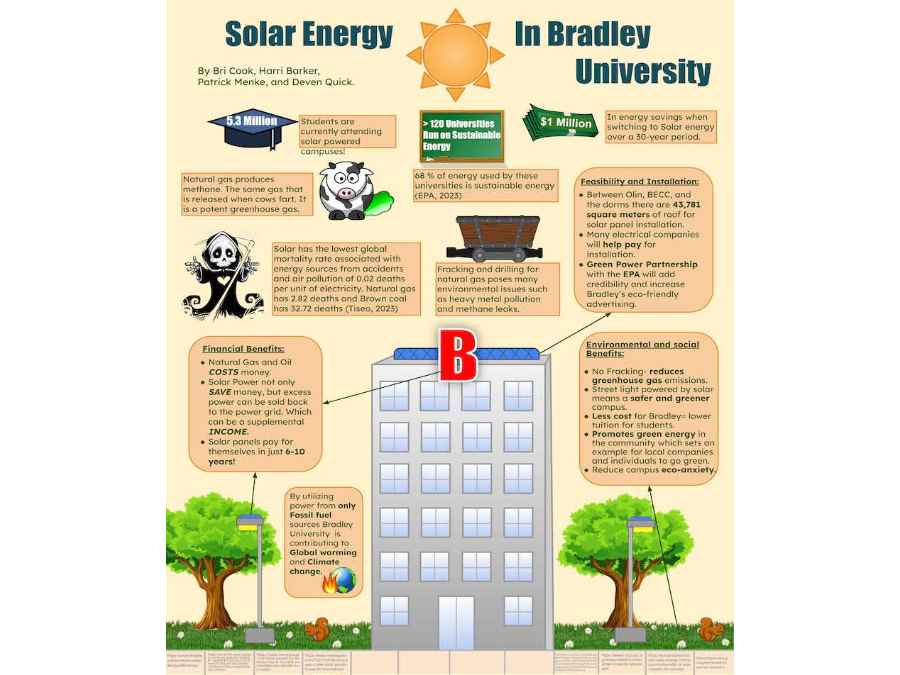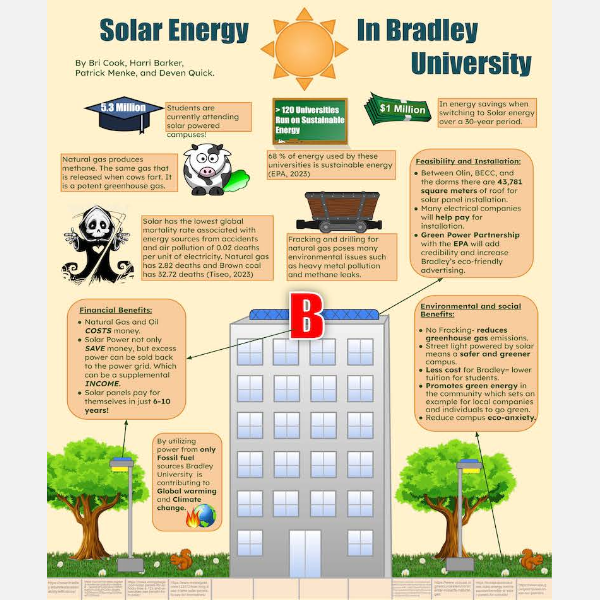These Students Want to Make Your Environment Better
Social and environmental issues go hand-in-hand with growing concerns about climate change and how it’s impacting our planet and our psyches. Students in the Environmental Sociology class, led by social work program director Patricia Saleeby are studying the ways in which these issues affect them on campus and beyond.
As a member of the World Health Organization (WHO), Saleeby’s research has centered around promoting the interaction of the environment with individual health and functioning. She helped to develop the classification system known as the International Classification of Functioning, Disability and Health which recognizes environmental factors that create barriers or facilitators to individual's functioning in their daily lives.
Environment Sociology 325 explores the complex relationships between humans and their environments researching topics such as deforestation, natural disasters, climate change, pollution and overconsumption. Students discuss social, political and cultural processes for these weekly focal points, including areas of environmental health and environmental justice.
Working in small groups, they identify an environmental concern on campus, research the issue and recommend a feasible solution using infographics that they present to the class. The group dynamics contribute to better project outcomes since it invites different ideas and perspectives.
“Many drew on their experiences on campus and researched academic works and media sources, which are essential because many of these environmental issues change so quickly,” Saleeby said.
Some groups collect their own data by interviewing students or other stakeholders about the issues; they also take photos around campus to document their findings.
Each group discussed their discoveries and ways to raise awareness and develop solutions to combat the problems they’ve identified. The projects ranged from food waste and waste management to recycling and solar powered energy, among other things.
Although their findings were based on problems they observed at Bradley, the issues are global and affect campuses everywhere.
“I really wanted students to understand that they are a key part of the Bradley community, and they can make a difference on campus and in the world in terms of improving their environments.”
— Emily Potts



